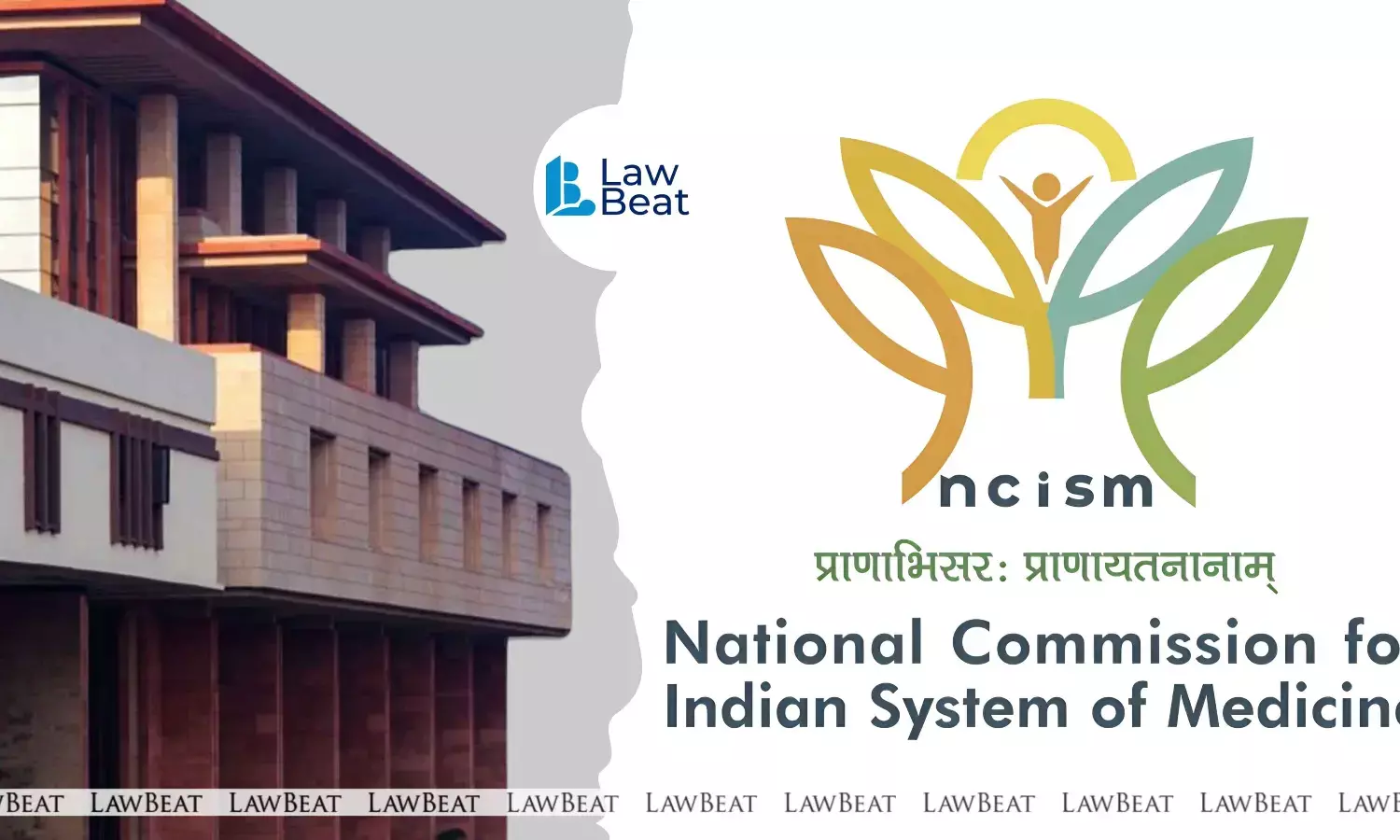Every Degree After Graduation Not Post-Graduation: Delhi HC Quashes NCISM Chairperson's Appointment

While quashing the appointment of the Chairperson of the National Commission for Indian System of Medicine (NCISM), the Delhi High Court held that a degree earned after graduation cannot automatically be treated as a postgraduate degree.
A division bench of Chief Justice DK Upadhyaya and Justice Tushar Rao Gedela was hearing pleas challenging the appointment of the respondent (Vaidya Jayant Yeshwant Deopujari) as Chairperson of the National Commission for Indian System of Medicine (NCISM).
The petitions were filed by Dr. Ved Prakash Tyagi and Dr. Raghunandan Sharma. The petitioners were represented by Advocates Ashok Kumar Panigrahi, Nabab Singh, Apurva Upamanyu, and Suryadeep Singh
The petitioners had sought a writ of quo warranto to quash the respondent's appointment. It was contended that the respondent does not possess the statutorily provided requisite essential eligibility qualification in terms of Section 4(2) and hence, he is an usurper of the office of Chairperson of the Commission.
Section 4(2) of the NCISM Act, 2020 lays down the qualifications required for appointment as the Chairperson of NCISM. As per the section, the Chairperson must have a postgraduate degree in any discipline of Indian System of Medicine, and have at least 20 years of experience in the field, out of which a minimum of 10 years should be in leadership positions.
It was the petitioners' case that the respondent neither possesses a post-graduate degree nor has 10 years’ experience as a leader in the area of healthcare delivery, growth, and development of Indian System of Medicine or its education and, therefore, lacks eligibility qualification.
However, ASG Chetan Sharma contended that the petition as a Public Interest Litigation (PIL) is not maintainable. He stated that the appointee had sufficient qualifications. It was contended that the Search Committee, headed by Cabinet Secretary had cleared his eligibility.
The appointee (Respondent No. 5) also contended that the petitioners lacked locus standi. It was further contended that a PhD is a higher qualification than PG, and that his positions in CCIM, Shivayu, and other committees demonstrated leadership.
After weighing the contentions of all parties, the court rejected the locus standi objection and held that if it is shown that the person holding public office lacks the statutory qualifications or that the appointment violates statutory rules, a writ of quo warranto can be issued.
Postgraduate Degree
"We are of the considered opinion that every degree awarded by a university after graduation cannot be termed to be a 'post-graduation qualification' for the reason that in the domain of higher education in our country. 'Post-Graduate Degree' has acquired a special meaning and significance and post-graduate degree means a Master’s Degree like M.A., M.Sc., M.D., LL.M., or M.Ed. in our country," the court said.
Pointing out that though a 3-year LL.B. and B.Ed. Degrees are awarded after graduation, the court said that they cannot be treated as postgraduate degrees
"Post-graduate degree in education will be either M.A. (Education) or M.Ed. As a matter of fact, B.Ed. or LL.B. Degrees are not construed to be a post-graduate degree even though these degrees are obtained only after graduation,' the court added.
The court also clarified that a Ph.D. is a research qualification, not a postgraduate degree as required under Section 4(2) of the said Act.
Leadership Experience
While dealing with the experience requirement, the court said, "Leadership experience means serving as the Head of a Department or Head of an Organization in the area of healthcare delivery, growth, or education of Indian System of Medicine."
However, in the respondent's case, the court clarified that his work in a private Ayurvedic drug manufacturing company, Shivayu Ayurved Ltd., Nagpur, as Head of R&D and F&D departments, did not qualify as leadership experience within the meaning of the statute.
Statutory Eligibility Prevails
Noting that the respondent clearly violated essential eligibility qualification, the court said," The submission that since the Search Committee on whose recommendation respondent No.5 was appointed as Chairperson of the Commission comprise of experts and was headed by the Cabinet Secretary of Government of India and, therefore, any interference in the appointment in question herein would mean to sit in appeal over the decision of the experts, in the facts of the present case, does not hold good for the reason that it is a case where the respondent No.5 clearly lacked the essential eligibility qualification statutorily prescribed by Section 4(2) of the NCISM Act, 2020."
Having observed so, the court found that the appointment of the Chairperson of the National Commission for Indian System of Medicine is contrary to Section 4(2) of the NCISM Act, 2020, as he does not fulfil the requisite qualification prescribed for appointment to the said office.
Accordingly, the court allowed the writ petitions.
"Hence, the writ petitions are allowed, and a writ of Quo Warranto quashing and setting aside the appointment of respondent No.5 as Chairperson of the Commission is issued," the court held while parting with the matter.
For Petitioners: Advocates Ashok Kumar Panigrahi, Nabab Singh, Apurva Upamanyu, and Suryadeep Singh.
For Respondents: ASGs Chetan Sharma, Archana Dave, Senior Advocates Arun Bharadwaj, Ruchi Kohli, CGSCs Subhash Tanwar, Monika Arora, Advocates Sandeep Mishra, Naveen, Amit Gupta, Bhavi Garg, Kumar Prashant, Avnish Dave, Subhodeep Saha, Prabhat Kumar, Anamika Thakur, Ankita Chaudhary, Shreyas Balaji, Chand Kapoor, Srishti Mishra, and Neha Mishra.
Case Title- Dr. Ved Prakash Tyagi v. Union of India through Secretary, Ministry of AYUSH & Ors. (Neutral Citation: 2025:DHC:4914-DB)
